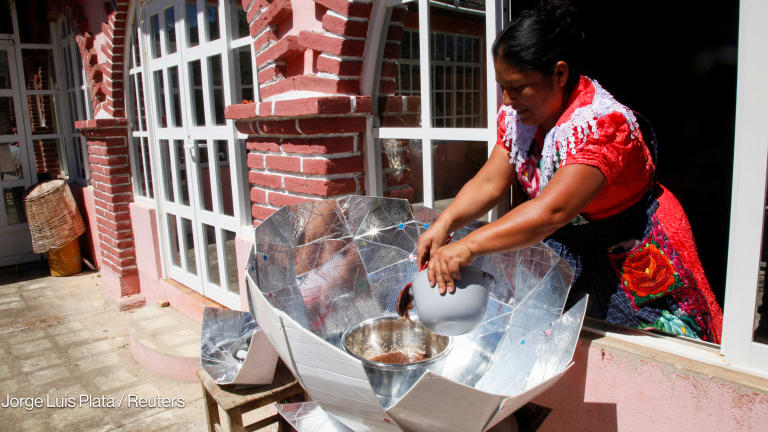
World leaders have hailed the decisions and agreements forged during the recently concluded climate change summit in Cancun, Mexico, which include the establishment of a USD100 billion green fund, as well as efforts to protect forests and reduce greenhouse gas emissions.
While far from a legally binding treaty on carbon emission cuts, the deals, dubbed as the “Cancun agreements,” have salvaged the United Nations’ multilateral climate negotiations, officials said.
The Cancun agreements cover the Green Climate Fund, a USD 100 billion initiative that aims to reduce greenhouse gas emissions and forest degradation, and measures to monitor, report and verify emissions reductions by developed countries, Bloomberg reports.
>> Instead of a Treaty, Climate Summit to Focus on Fund Use
The U.S., European Union and United Nations have lauded the Cancun agreements, with U.S. Secretary of State Hillary Clinton describing the deals as “a set of balanced international decisions under the United Nations Framework Convention on Climate Change (UNFCCC) which represent meaningful progress in our global response to climate change.”
“Many of us when we came to Cancun feared there was a real risk that nothing would be done,” EU climate commissioner Connie Hedegaard was quoted by Euobserver as saying in a news conference Dec. 11. “We got the Cancun Agreement, that is progress.”
“Negotiators have resuscitated the UN talks and put them on a road to recovery. This deal shows the UN negotiations can deliver. There is now hope for action to help the millions of poor people who are already struggling to survive the effects of climate change,” Oxfam International Executive Director Jeremy Hobbs said in a statement.
Last year’s U.N.-led climate conference in Copenhagen, Denmark, failed to craft a global deal on targets and sanctions for greenhouse gas emissions but instead proposed the Copenhagen Accord, which put forward USD30 billion in emergency climate aid over the next three years with the goal of increasing the assistance to USD100 billion per year by 2020.
Kyoto Protocol
The agreements, however, failed to determine whether the Kyoto Protocol, which requires 40 wealthy nations to cut greenhouse gas emissions, should be extended beyond its 2012 expiration. They also did not specify how to raise money for the green fund, worth USD100 billion annually, which will be managed by the World Bank, Reuters reports.
The coalition South-South Summit on Climate Justice and Finance said financing institutions such as the World Bank and private banks should have no role in climate finance.
“They continue even now, as they have for decades, to finance harmful projects including fossil fuel projects, megadams and others that exacerbate climate change. This must be stopped,” the group said in a statement.
Bolivia has opposed the Cancun agreements, which has deferred discussion on the Kyoto Protocol until the next scheduled climate talks in South Africa in 2011.
“For us, this is not a step forward. It is a step back, because what is being done here is postponing without limit the discussion on the Kyoto Protocol,” Bolivian Ambassador Pablo Solon was quoted by CNN as saying on Dec. 11.
African Development Bank President Donald Kaberuka has also called for a comprehensive post-2012 Kyoto agreement.
Environmental non-governmental organization Friends of the Earth said the Cancun deals were “weak.”
“Real substance to prevent catastrophic climate change is missing,” Susann Scherbarth, a climate justice campaigner with the NGO, was quoted by Euobserver as saying.








